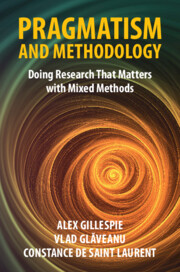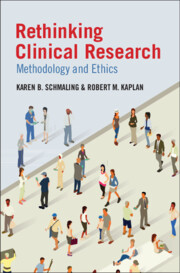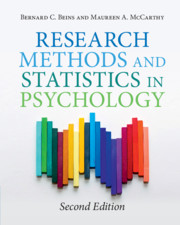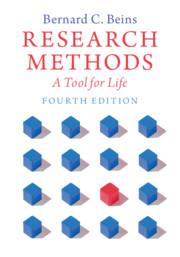Pragmatism and Methodology
Taking a pragmatist approach to methods and methodology that fosters meaningful, impactful, and ethical research, this book rises to the challenge of today's data revolution. It shows how pragmatism can turn challenges, such as the abundance and accumulation of big qualitative data, into opportunities. The authors summarize the pragmatist approach to different aspects of research, from epistemology, theory, and questions to ethics, as well as data collection and analysis. The chapters outline and document a new type of mixed methods design called 'multi-resolution research,” which serves to overcome old divides between quantitative and qualitative methods. It is the ideal resource for students and researchers within the social and behavioural sciences seeking new ways to analyze large sets of qualitative data. This book is also available as Open Access on Cambridge Core.
- Offers an overview of the pragmatist approach to different aspects of research, from epistemology, theory, and questions to ethics, as well as data collection and analysis
- Introduces new arguments for why we need to overcome the quantitative-qualitative divide and provides useful methodological tools for overcoming this division
- Outlines a new type of research design that is best placed to analyze today's qualitative big data
- This book is also available as Open Access on Cambridge Core
Reviews & endorsements
'This book offers a more than welcome clarification of the role of pragmatism as a framework for several methodological contexts. It is very important for qualitative, mixed methods, and big data research, and for the methodological foundation of psychological research. It is clearly written and very accessible for various audiences.' Uwe Flick, Freie Universität Berlin, Germany
'We must congratulate the authors for this bountiful attempt to cross the divide between the quantitative and qualitative research communities. Their choice of philosophic pragmatism as the vehicle for this uniting is right on target, and their concern with ethical implications adds vital dimension to the ongoing dialogues. This is a vitally needed reflection.' Kenneth J. Gergen, Swarthmore College, USA
'This remarkable book insists that social research should work on expanding human possibilities in ethical, imaginative, and responsive ways. Building on early American pragmatism, the authors argue that complex multifarious human interests can only be addressed by mixing different research methods. Their stance greatly contributes to current debates on truth, post-truth, epistemology, and useful knowledge, among other fundamental issues.' Ivana Markova, University of Stirling, UK
'This book should be used in introductory research methods courses, to complement the standard texts. Students will enjoy this book, which presents a clear and elegant introduction to research methodology from a pragmatist perspective, with a leaning toward mixed methodology.' Fathali M. Moghaddam, Georgetown University, USA
'Informative, insightful, and eminently practical. Gillespie, Glăveanu, and de Saint Laurent capture the spirit of pragmatist thinking, redevelop it in the context of contemporary problems, and present it to us in a way that is timely and reinvigorates social scientific inquiry.' Kieran O'Doherty, University of Guelph, Canada
Product details
January 2024Paperback
9781009013789
252 pages
230 × 150 × 15 mm
0.373kg
Not yet published - available from February 2025
Table of Contents
- Preface
- 1. Pragmatism
- 2. Epistemology: How We Know
- 3. Theory: What We Know
- 4. Creating Questions
- 5. Eliciting and Transforming Data
- 6. Mixing Qualitative And Quantitative Methods
- 7. Multi-Resolution Research
- 8. Ethics
- 9. Expanding Human Possibilities
- References
- Index.






